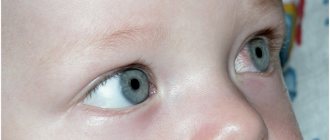Previously, little attention was paid to the issue of treating depression in children, believing that they do not experience such deep mental states as adults do. However, the increase in the number of suicides committed by children and adolescents in recent years has forced psychotherapists to take a different look at the problem.
Depression in children and adolescents is quite common, but not always recognized. Perhaps due to elementary inattention to children's problems, or maybe because they are more inclined than adults to hide their feelings and withdraw into themselves. Depressive conditions are manifested by numerous persistent symptoms, such as depressed mood, negative life attitudes, behavioral and thinking disorders, and decreased physical activity.
Previously, experts believed that children under 12 years of age do not suffer from depression. However, it turned out that even children under one year old can be susceptible to this condition, but at each age the disease manifests itself in its own way.
What is teenage depression?
Depression is not a condition from which people can “break out” or simply “cheer up.” This is a real medical condition that can affect a person's life in every way if not treated properly.
Despite the wide coverage of this problem, we are faced with misconceptions about teenage depression. During adolescence, many children are quite aggressive, difficult to communicate with, rebellious and trying to become independent. Teenagers often suffer from mood swings. But depression is something else. A depressive state in a teenager can destroy the very personality, causing an overwhelming feeling of sadness and despair.
Unlike adults, who themselves have the opportunity to seek help, adolescents usually have to rely on parents and teachers to establish the very fact of depression and receive the necessary treatment.
Treatment
Mild forms of depression in children are treated at home. It is helpful for a child undergoing treatment to remain in a familiar environment, attend school, and do homework, such as going to the grocery store.
Severe cases of the disease, accompanied by suicide attempts or thoughts of suicide, should be treated only in a hospital setting.
Antidepressants
Major depression in children is treated with antidepressants. The most optimal drug is Adaptol. Children tolerate the drug well; drowsiness and side effects do not occur. The medicine helps normalize sleep and mood, makes it possible to strengthen the body's resistance to stress and allows you to quickly get out of a state of depression.
The medicine tenoten is also used - a homeopathic drug that reduces anxiety, normalizes sleep and appetite. Tenoten improves concentration and normalizes memory.
To lift a child out of severe depression, dosages of amitriptyline, azaphene, and pyrazidol are prescribed, which should be used only in a hospital setting under the supervision of a doctor.
Psychotherapy
Cognitive behavioral psychotherapy helps to overcome emotional stress, relieve negative mood, help adapt to society and get out of a depressive state.
Individual psychotherapy teaches a child not to hide his experiences, to open up to people, to talk about problems and to overcome them. If depression in children was caused by family relationships, family psychotherapy helps parents establish normal communication with the child.
Treatment of depression in children will be successful only if there are positive changes in the family. Parents need to learn to accept their child, understand his needs and interests, without shifting their patterns and expectations onto him.
Parental help
Depression in children and adolescents leads to decreased self-esteem and difficulties in communicating with parents, teachers, and peers. But only parents can provide the support and understanding the child needs. Only parents know their children well enough and must help them overcome difficulties and become “mediators” between the child and the environment.
Until the child gets rid of the oppressive state, you need to talk with teachers, warn about a difficult period in life, and ask for a tolerant attitude. You should also ask teachers to keep the child’s problems a secret so that peers do not find out about the illness. Extra ridicule will bring additional stress.
- Current information: what does Afobazol help with and can children use it?
A depressive state makes a person vulnerable; he feels his own uselessness, clumsiness, and difference from others. One carelessly thrown word towards a child can aggravate the state of depression, so it is better to avoid such situations.
Periods of exacerbation should be accompanied by increased attention to the child. Parents are advised to monitor how they speak towards the child, to show with their words and behavior that he is the best, loved and needed. This attitude has a healing effect and helps to quickly bring the child out of depression.
Symptoms of depression
Depression is associated with high levels of stress, anxiety, and in worst case scenarios, suicide. It can also affect a teenager: personal, school, work, social, family life.
In general, among the causes of depression in a child that explain the development of depression disorder in adolescence are the experience of high levels of stress, frequent conflicts and the development of a kind of interpersonal dependence.
The most common symptoms encountered in adolescents suffering from depression are:
- Normal feeling of sadness or irritability
- Decreased physical activity
- Insomnia and other sleep problems
- Irritability, mood swings and behavior problems
- Cry
- Loss of appetite
- Social isolation or loss of interest in other people
- Ideas, thoughts or death attempts
- Expulsion from school
Some of these symptoms may not always be signs of depression. If you've ever raised a teenager, you know that changes in appetite are often normal, particularly during growth spurts and especially if your teen plays sports.
Healthy Aging
What to do when a midlife crisis turns into depression?
What is a midlife crisis? It's the butt of jokes and stereotypes - the period in life when you do weird, impractical things, like impulsively quit your job, buy a red car, or leave your wife/husband.
For many years, the midlife crisis was perceived as such. But these days, a midlife crisis can be called a transitional period - and it's not that bad.
Experts say the term "crisis" doesn't always apply to midlife, as it can involve either severe depression or a period of extreme growth. The point is not to miss the moment when this transitional period begins to develop into depression and to help it in time.
Definition of midlife crisis
Since the 1980s, the term "midlife crisis" has become very popular, says Dan Jones, Ph.D., director of the Center for Counseling Psychology at Appalachian State University in Boone, North Carolina. He studied transition periods in human adult life.
"The term has never been an official diagnostic category," he says. And the age at which a midlife crisis occurs may vary. It depends on the individual and their life expectancy.
According to Jones, a midlife crisis can occur between the ages of 37 and 50.
Either way, it usually occurs as a result of some major life event, he says, such as your youngest child graduating from college or your anniversary, which announces to the world that you are entering a new decade.
"The death of a parent can also be the trigger for a midlife crisis," Jones says.
Midlife crisis: Men versus women
Men and women are equally likely to experience this transition period, Jones says. "But it looks different in the two sexes."
“The stereotype is that men buy red sports cars during this period,” he says. But of course, this doesn't always happen, although, according to Jones, men are more likely to prove something during this period.
Men tend to be critical of their work, he says. They want to appear successful, even if their achievements are not what they hoped for.
"Women often judge their lives based on the seriousness of their relationships," he says, even if they have successful careers. Thus, at this age, they evaluate their role as wife, mother, or both.
Midlife crisis as a normal period of life
Midlife is increasingly accepted as a normal part of life. Yale University psychologist Daniel Levinson's famous theory of adult development suggests that all adults go through a series of stages. And at the center of his theory is the structure of life, which is described as the underlying pattern of human life in a certain period of time.
For many people, life structure primarily includes family and work, but it may also include, for example, religion or economic status. According to this theory, the midlife transition is simply another normal transition to a new stage of life.
In midlife, people often reevaluate their priorities and goals, Jones says.
Sometimes women, feeling that their children have grown up, want to go back to school, even if they have a job, arguing that they can do whatever they want.
“They are able to realize some dreams that they have abandoned as a result of family responsibilities.”
"Men are starting to pay attention to their feminine qualities," Jones says. As a result, they can take up cooking, art, or spend more time with their children.
At the same time, women may become more selfish during this period, Jones says, even though they value relationships. They may feel that they have already “fulfilled all their main responsibilities” and do not want, for example, to be a caregiver for their grandchildren every time they are asked to do so.
Midlife crisis: The path to depression or prosperity?
Midlife can be a very rewarding time for some and a difficult time for others, agrees Joan Ehr. Sherman, a marriage and family therapist from Lancaster.
Whether this crisis turns into depression or an opportunity for growth in life depends on many factors, including the support of loved ones.
Sherman remembers a woman who came to her for a consultation. She was in her late 50s and married to a man around her age who traveled constantly for work throughout their marriage. As a result, all household responsibilities and raising children fell on her shoulders.
She was a nurse, but gave up her profession to devote full time to children. When the kids went off to college, she thought, “What's next?” Sherman says. The woman felt as if she had completely lost her individuality.
The husband, who also spoke with Sherman, was concerned about his wife, who had been sleeping and crying for nearly a week.
At the next therapy session, Sherman offered the woman the following solution: “You are losing your individuality, but you have the opportunity to create a new one.”
Yes, her parenting responsibilities have changed, but this loss of responsibility - after her children go to college - will give her time to create her new image and personality. She liked this idea. The following week, she contacted the employment service.
When a midlife crisis turns into depression
Of course, not everyone gets through this transition so easily, Jones says. Middle-aged people should be aware of the symptoms of major depression, such as:
- Diet changes
- Changes in sleep patterns, fatigue
- Feelings of pessimism and hopelessness
- Restlessness, anxiety, or irritability
- Feelings of guilt, worthlessness, or helplessness
- Loss of interest in activities that were once enjoyable, including sex and hobbies
- Suicidal thoughts or suicide attempts
- Physical pain such as headaches, stomach upsets that do not respond to treatment.
Next »
What causes teenage depression?
There is no known cause of teenage depression. However, there are several factors that can lead to depression, including:
Differences in brain function
Research has shown that adolescent brains are structurally different from adult brains. Teens with depression may also have hormonal differences and different levels of neurotransmitters. Neurotransmitters are key chemicals in the brain that influence how brain cells communicate with each other and play an important role in regulating mood and behavior.
Traumatic early life events
Most children do not have well-developed coping mechanisms. Any event can leave a lasting impression. The loss of a parent or physical, emotional or sexual abuse can have a lasting effect on a child's brain, which can contribute to depression.
· Inherited traits
Research shows that depression has a biological component. It can be passed from parents to their children. Children who have one or more close relatives with depression, especially one parent, are more likely to be depressed themselves.
· Learned patterns of negative thinking
Teenagers who are regularly exposed to pessimistic thinking, especially from their parents, and who learn to feel helpless rather than overcome challenges, may also develop depression.











